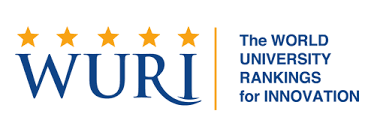Head of Section for Developing Eight (D-8) Kementrian Luar Negeri
Ariestya Dwi Cahyani, graduate from Marketing Communication batch VI has succeeded to achieve her dream to become a part of the Ministry of Foreign Affairs (Foreign Ministry) Indonesia. How women who nicknamed Tya could achieve her dream to be a part of the Ministry of Foreign Affairs? And how their daily life as a student first LSPR? The following is a confession of TYA:
When i was in college
I have had work experience since being in college. No doubt, these experiences have a considerable role for me to continually improve my discipline to manage time and work. After that, in addition to studying at LSPR, I also study at the University of Indonesia Faculty of Humanities at the same time. Still remembered in my mind, how I had to adjust the course of time between the LSPR and UI, racing against KRL schedule to Depok and also sells sandwiches that I dropped off campus cafeteria C which was then located in Complex Bimantara (now MNC).
Although I have to sacrifice time to relax and hang out with friends, I never felt sorry for the choices I take that time. There is a separate assessment when I chose to continue my education LSPR as my place. I felt LSPR as one of the places of learning are qualified in the field of science communication. The curriculum not only on theory, but also practice in which students gain experience learning directly from experts. Currently I lead the field work is political communication, diplomacy, and relations between states.
Being staff of the Foreign Ministry
Having passed in the session, I did not immediately become employees of the Foreign Ministry. Some professions have I lead first, such as part-time employee at an office of research and marketing and also editor of a print media company focused on the field of lifestyle. But my interest to international issues, a variety of Indonesian government policy and also its impact on the national level was the one who took me to work in the Foreign Ministry.
In fact to be part of the Foreign Ministry is not easy. I should pass an entrance exam ID Portal which has been divided into several stages, namely the selection of administrative, general knowledge, mastery of a foreign language, psychological test, test panels and interviews, as well as medical tests. At that time I had to compete with 30,000 participants from all over Indonesia before finally selected 120 other participants.
Since 2009, my name is listed as one of the servants of the State in the Ministry of Foreign Affairs. Now, after five years, I have been given the responsibility to serve as Head of Section for Developing Eight (D-8), which deal with the issue of cooperation between Indonesia and international organizations Developing Eight (D-8) whose members are Bangladesh, Indonesia, Iran , Malaysia, Egypt, Nigeria, Pakistan, and Turkey. As the main focus, the D-8 group was established to strengthen trade relations between the 8th country in the hope of opening access and become the new market participants as an alternative to a global scale. Related to the duties and functions, as the national coordinator, Ministry continues to work closely with stakeholders in achieving the organization’s objectives in the field of economy.
ASEAN Economy Community (AEC)
Speaking about the AEC, we understand the concept of ASEAN Community in 2015 which consists of three pillars, namely the Political-Security Community, Economic Community and Socio-Cultural Community. Of the three pillars, the AEC which impact directly felt by the public. AEC is a community that was formed with the aim to build the ASEAN economic region stable and highly competitive where there is freedom of the movement of goods, services, investment, and capital. This is done in order to create equal economic conditions, reduce poverty and social inequalities by establishing a single market-based production by 2015. In order to realize a successful AEC, ASEAN has evolved from a state oriented to people-oriented because of the success of building a community needs the involvement of all parties, including people (human resources).
AEC challenge for Indonesia is that globalization is in sight. On the domestic front (in the country), the ratio of productive age population is estimated to reach 50% of the total population, which means the number of job seekers increased from the current level. To that end, the economic capacity required to provide decent employment. Of the region (AEC),HR (Human Resource) competition between countries will be more competitive. Entering keywords in the AEC is to prepare highly competitive human resources. Students need to prepare themselves by developing their own potential. In addition, the community, especially young men and women hope the nation should have some characteristics, such as speed and creativity, agility and flexibility, persistence and perseverance, as well as teamwork and cooperation. Due to mobility and dynamics of the ASEAN Community highly rated, HR Indonesia is required to be independent, have the specific skills and expertise, as well as creative in creating new opportunities.
Indonesia plays an important role as the only ASEAN country in the G 20 and has a strategic position as an “extender” the interests of both organizations. I think Indonesia is facing globalization strategy in the framework of the AEC, among others, to secure the domestic market, strengthen the competitiveness of the economy to the global level, and increase the value of exports. With bargaining power is owned by Indonesia. (Intan & Irene)






